Ilhan Omar Makes Convicted War Criminal Elliott Abrams Squirm
The Minnesota representative presses Trump’s new Venezuela envoy on his human rights record.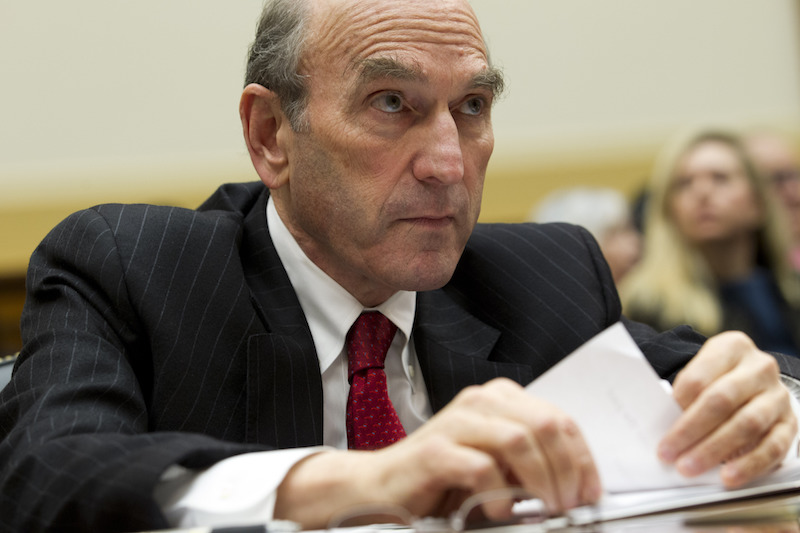 U.S. Special Representative for Venezuela Elliott Abrams testifies before the House Foreign Affairs subcommittee hearing on Venezuela on Capitol Hill in Washington. (Jose Luis Magana/AP)
U.S. Special Representative for Venezuela Elliott Abrams testifies before the House Foreign Affairs subcommittee hearing on Venezuela on Capitol Hill in Washington. (Jose Luis Magana/AP)
As forensic experts in El Salvador continue the 26-year effort to exhume the bodies of the victims of the December 1981 El Mozote massacre, Minnesota Democratic Rep. Ilhan Omar grilled the Trump administration’s Venezuela envoy, Elliott Abrams, on his role in human rights violations.
“I fail to understand why members of this committee or the American people should find any testimony that you give today to be truthful,” Omar said during a House foreign affairs hearing on Venezuela on Wednesday. She was referencing the Iran-Contra scandal, after which Abrams pleaded guilty in 1991 to two misdemeanor counts for lying to Congress about using cash from arms sales to Iran to fund the Contra rebels in Nicaragua. Abrams was later pardoned by George H.W. Bush. As Abrams began to speak, Omar cut him off.
“It wasn’t a question,” she said.
“It was an attack,” Abrams said, raising his voice.
Abrams’s utterly indignant expression, enraged that anyone — ANYONE, let alone a Muslim woman of color — would dare ask him to his face about his record is priceless. https://t.co/hrC121KKRC
— Ali Gharib (@Ali_Gharib) February 13, 2019
“That was not a question. Thank you for your participation,” Omar replied, as she turned to one of the most brutal human rights violations on Abrams’ record:
“On February 8, 1982, you testified before the Senate Foreign Relations Committee about U.S. policy in El Salvador. In that hearing, you dismissed as Communist propaganda [the] report about the massacre of El Mozote, in which more than 800 civilians, including children as young as 2 years old, were brutally murdered by U.S.-trained troops. During that massacre, some of those troops bragged about raping 12-year-old girls before they killed them. You later said that the U.S. policy in El Salvador was a ‘fabulous achievement.’ Yes or no, do you still think so?”
“From the day that President [Jose] Duarte was elected in a free election, to this day,” Abrams said, slamming a pointer finger on the table, “El Salvador has been a democracy. That’s a fabulous achievement.”
Duarte was appointed president of the military junta and served from 1980 to 1982. He was then ousted. The election that Abrams referenced to was in 1984, three years after the El Mozote massacre.
“Even with Mr. Duarte’s election, the military was widely viewed as the country’s most powerful institution, through which wealthy Salvadoran families traditionally wielded oligarchic power,” The New York Times wrote in his obituary in 1990.
“Yes or no, do you think that massacre was a fabulous achievement that happened under our watch?” Omar asked.
“That is a ridiculous question—” Abrams began.
“Yes or no?” Omar asked.
“No. … I am not going to respond to that kind of personal attack, which is not a question,” Abrams said.
Omar then turned to Venezuela, asking whether civilians would be protected there. “Does the interest of the United States include protecting human rights and include protecting people against genocide?” she asked.
“That is always the position of the United States,” Abrams said.
As Omar suggested when she began, it’s hard to take his words at face value. Jon Schwartz wrote at The Intercept:
The choice of Abrams sends a clear message to Venezuela and the world: The Trump administration intends to brutalize Venezuela, while producing a stream of unctuous rhetoric about America’s love for democracy and human rights. Combining these two factors — the brutality and the unctuousness — is Abrams’s core competency.
Watch Omar and Abrams’ exchange in the hearing:
Your support matters…
Independent journalism is under threat and overshadowed by heavily funded mainstream media.
You can help level the playing field. Become a member.
Your tax-deductible contribution keeps us digging beneath the headlines to give you thought-provoking, investigative reporting and analysis that unearths what's really happening- without compromise.
Give today to support our courageous, independent journalists.


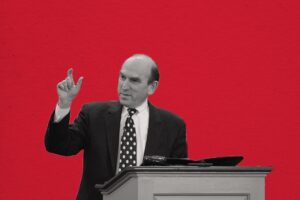
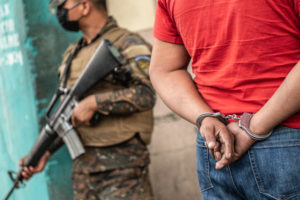
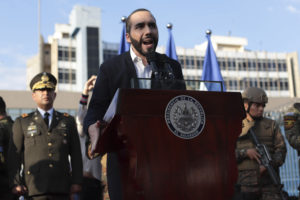
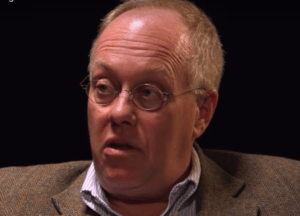
You need to be a supporter to comment.
There are currently no responses to this article.
Be the first to respond.